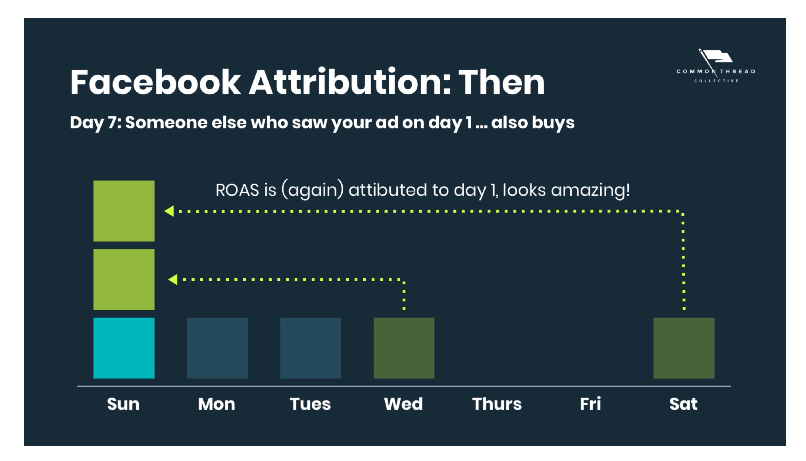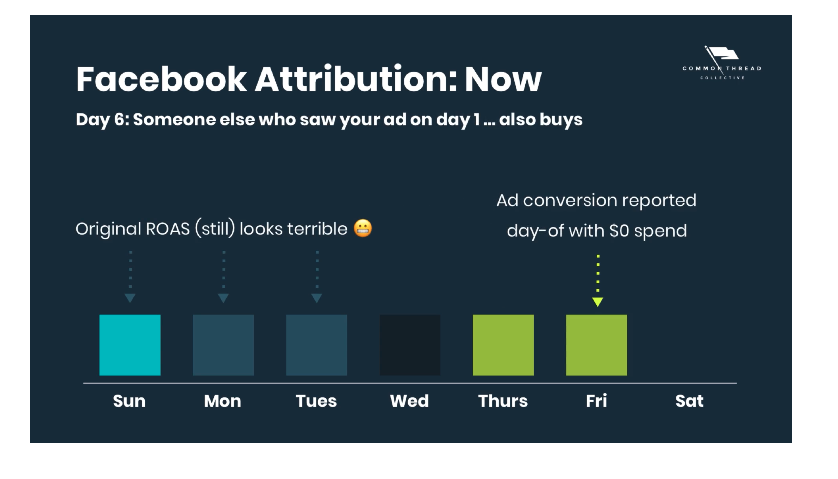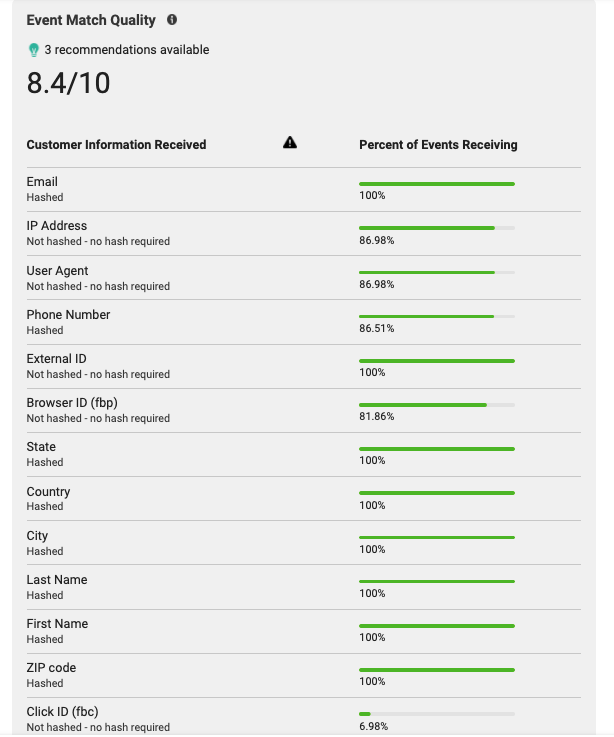Why Is Meta (Facebook) Under or Over-Reporting Revenue in Ads Manager?
Learn the common reasons why reporting may not be what you expect.
Overview
Recent updates to Meta (Facebook) Ads Manager, particularly due to changes in Apple's iOS, have introduced several complexities in reporting and attribution. Users often report issues with over-reporting or under-reporting of metrics. This document provides a structured approach to understand and address these issues.
Under-Reporting Issues:
Attribution Window Differences:
- The issue: Post-iOS changes, attribution behavior has shifted. Previously, if a user clicked an ad on Sunday and made a purchase on Wednesday, the conversion was attributed to Sunday. After iOS changes, if the user opts out of tracking, the conversion is attributed to the day of purchase (Wednesday).
- Pre-iOS Attribution: (See Figure 1)

Figure 1
- Post-iOS Attribution: (See Figure 2)

Figure 2
- The impact: Campaign performance might appear lower if users convert several days after interacting with an ad, potentially leading to premature campaign termination due to perceived low ROAS (Return on Ad Spend).
Smaller Attribution Window & Reporting Delays:
- The issue: Meta's (Facebook) attribution window has changed. Meta (Facebook) recommends waiting 72 hours to get a more accurate performance picture. This delay means that even with accurate tracking, reports may not reflect conversions immediately. Meta (Facebook) has also reduced the conversion window from 30 days, which can affect reports for products with longer buying cycles.
Recent Events UI Limitations:
- The issue: Recent Activities in Meta (Facebook) Events Manager will not display events from users who have opted out of tracking.
Missing Tracking Parameters:
- The issue: For purchase events, essential parameters include email, fbp, external ID, IP address, user agent, and a small percentage of fbc. Missing these parameters can limit Meta's (Facebook) ability to match users accurately.
- (See Figure 3)

Figure 3
Post-Purchase Upsell Tracking Issues:
- The issue: If post-purchase upsell tracking is not configured correctly, you may miss the initial purchase event. Ensure your GTM (Google Tag Manager) setup includes upsell tracking.
Offsite Checkout Conversions:
- The issue: Conversions completed through offsite checkouts may not be sent to Meta (Facebook), resulting in incomplete attribution reporting.
Meta's (Facebook) Disclaimer on iOS Opt-Out Users:
- The issue: Meta (Facebook) may not display conversions from users who have opted out of tracking. This is a known limitation acknowledged in Meta's (Facebook) Ads Manager.
Over-Reporting Issues
Attribution Window Impact:
- The issue: The same attribution window differences that lead to under-reporting can also cause over-reporting. For example, if a user clicks an ad on Sunday, and campaigns end on Wednesday but the user purchases on Friday, Meta (Facebook) might attribute the conversion to Friday, even if no active campaigns are running.
Duplicate Purchase Events:
- The issue: Check your Purchase Event for Event Deduplication. If deduplication is not correctly configured, duplicate purchase events may appear.
Common Causes:
- Multiple tracking setups (e.g., native Shopify <> Meta (Facebook) integration and Elevar).
- Incorrect configuration of event ID deduplication for pixel and server events.
- Inconsistent event ID keys across different apps.
- Multiple pixels running simultaneously without proper event segregation.
SPAM Traffic and Browser Events:
- The issue: Malicious users may send fake events to your pixel, resulting in erroneous purchase events on non-standard thank-you pages or with implausible values.
Offline Conversion Events API:
- The issue: If offline conversion events are sent via Zapier and also attached to Ad Sets, this may result in duplicate purchase events.
Updated about 1 month ago
